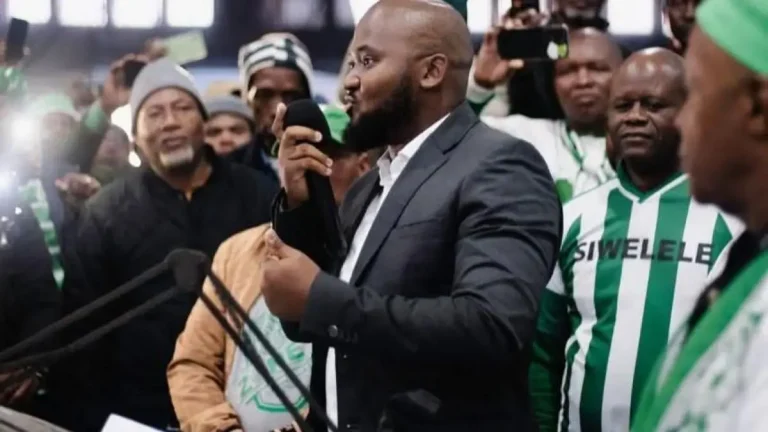South African football is confronting a worrying reality: the Premier Soccer League (PSL), once a beacon of competitive sport, is increasingly being overshadowed by political and managerial turbulence. Nowhere is this more evident than at Siwelele FC, a club that has struggled both on and off the pitch.
Thank you for reading this post, don't forget to subscribe!On the field, Siwelele’s performance has been dire. The newly promoted side has lost six of its eight league matches and has failed to find the back of the net in seven consecutive games. Yet, the true crisis lies beyond the scoreboard.
Leadership in Crisis
At the heart of the turmoil is club chairman Calvin Le John, who has close familial ties to Sports Minister Gayton McKenzie. Le John has recently sparked controversy with remarks about the club’s management and future direction. In a public statement, he confirmed the departure of CEO Stan Matthews and assistant coach Andre Arendse, citing alleged safety concerns—a revelation that paints a picture of a tense and potentially hostile club environment.
Le John did not stop there. He announced plans to unilaterally terminate the contracts of players he deems insufficiently committed, stating, “Players who lack heart and commitment to this team will be released.” Such reactive decision-making highlights a management style that prioritises short-term control over long-term strategy.
Political Influence and Ownership Standards
These developments raise pressing questions about the standards of club ownership in the PSL. When political influences seep into football administration, the integrity and competitiveness of the league are at risk. Leadership should focus on stability, development, and a clear vision—not threats and abrupt dismissals.
Siwelele’s internal chaos is emblematic of a broader issue within South African football. The league cannot flourish if those in charge are more concerned with politics and scapegoating than building cohesive teams.
Financial Mismanagement Raises Alarms
The South African Football Players’ Union (SAFPU) has already intervened, expressing concern over the club’s financial instability and warning that inadequate due diligence during acquisition contributed to the current crisis.
This isn’t the first time the PSL has faced questions about ownership standards. PSL chairman Irvin Khoza previously confronted similar issues with Royal AM, a club that disrupted the league by refusing to participate in scheduled fixtures and play-offs. Khoza has repeatedly stressed the importance of responsible ownership, declaring, “I will not let anyone anyone mess it up,” but with clubs frequently changing hands, the league’s credibility remains vulnerable.
The Urgent Need for Accountability
Siwelele’s situation underscores the urgent need for higher standards and accountability at all levels of PSL management. The crisis goes beyond poor performance; it exposes lapses in financial stewardship, governance, and professional conduct.
Football often mirrors societal challenges, and Siwelele FC may serve as a stark warning for the PSL. If ownership standards continue to decline, it is not only the quality of play but the reputation of South African football itself that hangs in the balance.
Related articleKaizer Chiefs Duo Loaned to Bloemfontein for the Rest of the Season




